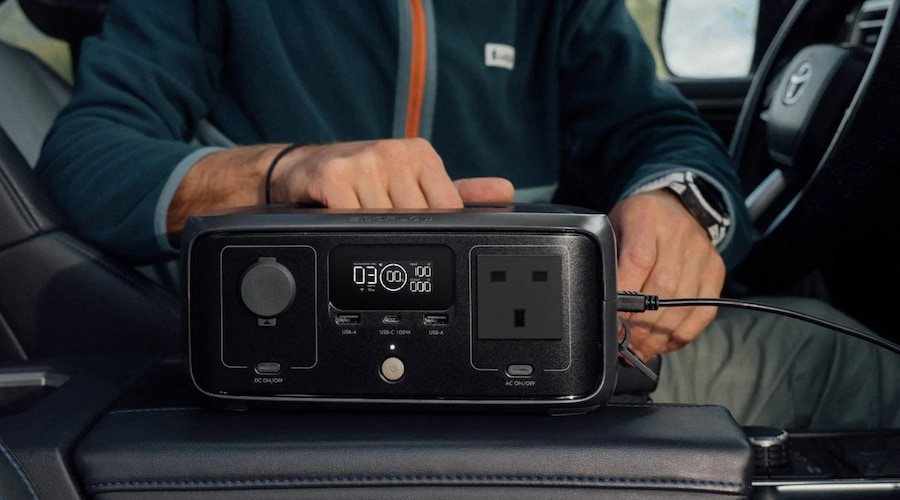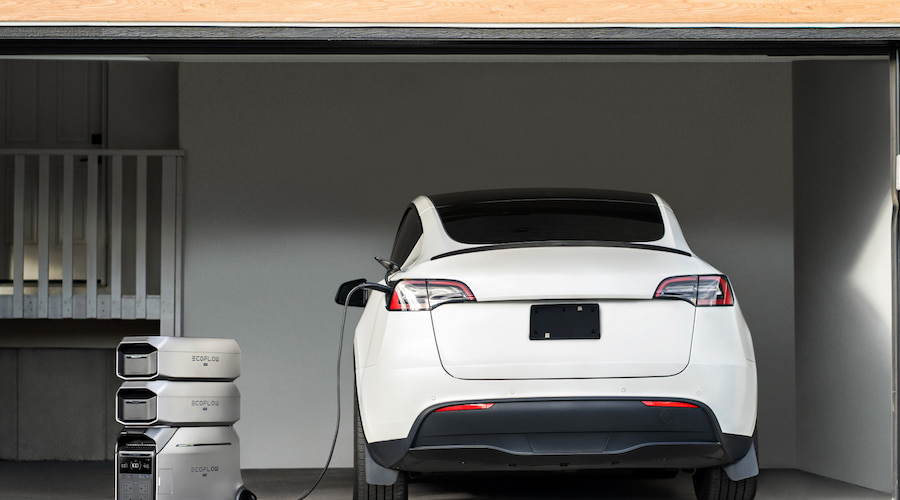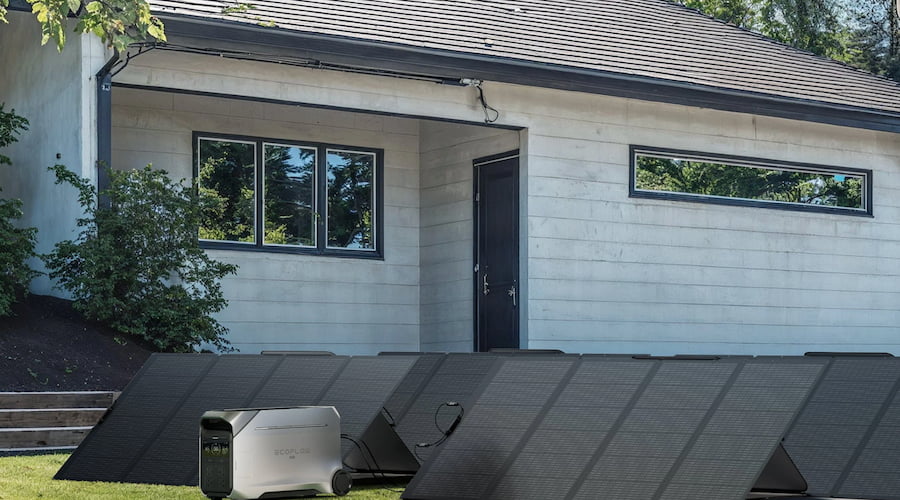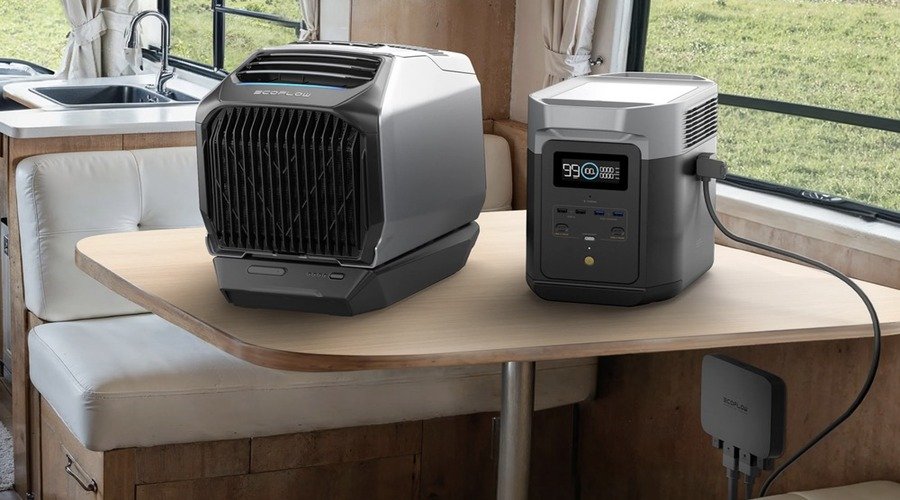How Long Do Car Batteries Last? Factors That Affect Lifespan
You probably don’t give it much thought when you turn your key or press the start button, but it’s all thanks to your car battery. Even though electric vehicles have put battery tech in the spotlight, it’s good to remember that every car on the road, from small petrol cars to fancy electric SUVs, needs a battery to get going.
So, how long do car batteries last? The answer, as with many things in motoring, can vary depending on a host of factors. In this guide, you’ll learn how long you can expect your car battery to last, what affects its lifespan, how to spot the signs that it’s on its way out, and what you can do to keep it going strong for as long as possible.
How Long Can a Car Battery Last?
Most cars that run on petrol or diesel have a 12-volt lead-acid battery, which is responsible for starting the engine and powering essential electrical systems. Generally, you can expect these batteries to last around 3 to 5 years.
Some might last a bit longer, maybe up to six years, or even ten in perfect conditions, but it’s a good idea to think of three to five years as the typical lifespan. Many battery makers offer warranties that fit this time frame, often three to five years, which shows what they expect too.
In contrast, electric vehicles (EVs) use high-voltage lithium-ion batteries designed to last much longer—typically 8 to 15 years, some makers even say 10 to 20 years. However, EVs also have a smaller 12-volt battery that powers things like lights, wipers, infotainment, and locks. That smaller battery has a similar lifespan to those in petrol and diesel cars.
Here’s a quick breakdown:
Petrol/Diesel car battery lifespan: 3–5 years
EV high-voltage battery lifespan: 8–15+ years
EV 12V auxiliary battery lifespan: 3–5 years
Many also wonder, how long should a car battery last without driving?Well, if you’re not driving your car, the battery can start to lose charge surprisingly quickly.
Usually, a petrol or diesel car battery in good condition might last about 1 to 2 months without the engine running. But this really depends on how old your battery is and its overall condition. Some say it could be as little as 2 weeks or as long as 4 months, so it can vary quite a bit.
The small but constant power drain from your car’s electronics, even when it’s turned off, causes this slow discharge. Modern cars, with all their computers and security systems, often have a higher parasitic drain.
For electric vehicles, the main high-voltage battery can hold charge much longer, but the 12-volt auxiliary battery can still drain over time—usually within 1 to 2 months if the car isn’t being used at all.
What Factors Affect the Lifespan of a Car Battery?
As we’ve seen, “How long will a car battery last?” can vary quite a bit depending on several everyday factors. Understanding these can help you get the most out of it and avoid being caught out with a flat one.
Driving Habits
Short, frequent trips don’t give your battery enough time to fully recharge, especially in stop-start traffic. If you mostly drive locally or do school runs and quick errands, your battery may wear out faster. On the other hand, longer journeys—like motorway driving or road trips—allow the alternator to properly recharge the battery.
Weather Conditions
Cold weather can be tough on car batteries. In the UK, winter temperatures reduce a battery’s efficiency and make it harder for your engine to start. Meanwhile, extreme heat (though less common here) can also cause internal battery damage and accelerate wear.
Vehicle Type and Technology
Modern cars have more electronics than ever—think touchscreen displays, heated seats, automatic lights, and safety sensors. All these features put extra demand on the battery. Similarly, start-stop technology and hybrid systems can wear down batteries quicker if not properly maintained.
Battery Quality
Not all batteries are created equal. Cheaper, lower-quality batteries may save money upfront, but they often don’t last as long. Investing in a reputable brand that suits your vehicle’s specs can make a big difference in long-term reliability.
Lack of Use
Leaving a car parked for long periods—especially without a trickle charger—can cause the battery to go flat. This is particularly common if your car is left unused for holidays, remote work, or during winter months.
Faulty Components or Electrical Issues
A malfunctioning alternator, parasitic drain (like a glovebox light staying on), or poor battery connections can all affect charging and cause your battery to fail sooner than expected.
How Do I Know If My Car Needs a New Battery?
A failing car battery doesn’t always die suddenly—there are usually signs that it’s on its way out. Spotting the warning signals early can save you from getting stuck with a car that won’t start, especially on a cold morning or when you’re running late.
Here are the most common signs your battery might need replacing:
Slow Engine Crank
If the engine takes longer than usual to turn over when you start the car, that’s often one of the first signs your battery is struggling. You might hear a sluggish, drawn-out cranking sound before the engine finally kicks in—or not at all.
Dashboard Warning Light
Keep an eye on the battery-shaped warning light on your dashboard. It can indicate a battery issue, or sometimes a problem with the alternator or charging system. Either way, it’s a sign you shouldn’t ignore.
Dimming Lights or Electrical Issues
When your battery is weak, you might notice dim headlights, flickering interior lights, or sluggish electric windows. In newer cars, infotainment screens might act up or features like stop-start may stop working properly.
Clicking Sound When Starting
If you hear a rapid clicking noise when turning the key (or pressing the start button), your battery may not have enough power to engage the starter motor. That’s a strong clue it’s near the end of its life.
You’ve Had It for 5+ Years
If your car battery is more than five years old, it’s a good idea to have it tested—even if it seems fine. Batteries can degrade quietly in the background and let you down with little warning.
Corroded Terminals or Swollen Case
Pop the bonnet and check the battery. White or bluish powder around the terminals means corrosion, which can affect performance. A swollen or bloated battery case (often caused by heat or overcharging) is also a definite red flag—it’s time for a replacement.
Frequent Jump Starts
If you’ve had to jump-start your car more than once recently, it’s time to stop treating the symptoms and check if the battery itself is to blame.
How to Extend the Car Battery’s Life?
Replacing a car battery isn’t the most exciting job—or the cheapest. The good news? With a few simple habits, you can help your battery last longer and avoid the hassle of an unexpected breakdown. Here’s how to keep your battery healthy for as long as possible:
Drive Longer, Not Just Often
Short trips don’t give your battery enough time to recharge properly. If you mainly do school runs, short commutes, or pop to the shops, try to take your car on a longer drive (20+ minutes) now and then to let the alternator charge car battery fully.
Avoid Letting the Car Sit Idle
Cars that sit unused for long periods—especially in winter—are more likely to suffer from battery drain. If you’re not driving regularly, consider starting the car once a week and letting it run for 15–20 minutes, or use a trickle charger to keep the battery topped up.
Switch Off Before You Get Out
Make sure everything is turned off before leaving your car: headlights, interior lights, radio, chargers—especially if your car doesn’t switch these off automatically. Leaving them on can drain the battery, even when the engine’s off.
Keep the Battery Clean and Secure
Check your battery now and then. Clean any corrosion (that white or blue powder) from the terminals, and make sure the battery is fitted securely. Loose connections or buildup can affect performance and shorten its life.
Invest in an Emergency Backup
If you ever find yourself with a dead car battery—whether you’re camping, on a road trip, or facing an emergency off the grid—a portable power station can be a real lifesaver. It offers a convenient and reliable way to recharge or jump-start your battery when traditional options aren’t available. One great option to consider is the EcoFlow RIVER 3 Portable Power Station.
It features a 12V DC car output, making it perfect for charging your car battery or powering automotive accessories in a pinch. With a 245Wh capacity and 300W rated output (with X-Boost up to 600W), this compact unit has enough power to handle essential gear, tools, and devices without breaking a sweat.
Charging flexibility is another big plus. You can recharge it using four different methods, including 100W car charging, 110W solar input, or via fast 320W AC charging, which powers it from empty to full in only 60 minutes—without damaging the battery.


Get It Tested Annually
Once your battery is around 3 years old, get it checked annually—especially before winter. Most garages and breakdown providers offer quick battery checks, often for free.
Charge Your EV Battery Between 20% and 80%
Unless you need the full range for a long trip, try to keep your EV battery charge between 20% and 80%. Charging to 100% regularly (especially if it just sits at that level) can put extra stress on the battery. Similarly, letting your battery drop below 10% too often can cause long-term wear.


If you’re travelling, going off-grid, or simply want a reliable backup for home or on-the-go EV charging, it’s worth having a portable power solution on hand. The EcoFlow DELTA Pro 3 Portable Power Station is a powerful and versatile option.
With 4000W output (6000W with X-Boost), Level 1 and 2 EV charging support (using the EV X-Stream Adapter), and a massive expandable capacity of up to 12kWh, it’s perfect for keeping your EV topped up in a pinch.
It’s quiet, easy to use, and charges to 80% in just 50 minutes using its super-fast multi-charge feature. You can also pair this solar battery with EcoFlow solar panels (up to 2600W input) for a renewable off-grid setup. Built with automotive-grade LFP cells and an IP65-rated design, it’s tough, dependable, and ready for all weather.


To take it a step further, pair it with the EcoFlow 800W Alternator Charger. It lets you charge the DELTA Pro 3 while you drive, turning your car into a mobile charging station. With up to 800W of power—that’s 8× faster than traditional in-vehicle outlets—you can top up 1kWh in just over an hour. It’s also a 3-in-1 device, working as a fast charger, battery maintainer, and jump starter, helping you keep your vehicle battery in top shape.


Conclusion
So, how long do car batteries last? For petrol or diesel cars, you can usually expect 3 to 5 years, depending on the weather, how you drive, and how well you look after it. Electric vehicle batteries are made to last much longer, generally 8 to 15 years or more, and how long they last is more about how you charge them and manage their temperature. No matter what kind of car you have, taking care of your battery and using your car mindfully are key to making the battery last and keeping you moving on the road.
FAQs
How long can a car battery last without the engine on?
A typical car battery can last about 1 to 2 months without the engine running, depending on its age, condition, and the car’s electrical systems. Even when the car is off, things like the alarm, clock, and electronics draw a small amount of power. If left too long without driving or charging, the battery may go flat—especially in cold weather or if it’s already weak.
What happens when a battery degrades?
As a car battery degrades, it gradually loses its ability to hold a charge and deliver power effectively. You might notice the engine takes longer to start, your lights dim, or electrical features stop working properly. In some cases, the battery might go flat more often or need frequent jump-starts. Eventually, it won’t be able to start the car at all and will need replacing.
Is a 7-year-old car battery still good?
A 7-year-old car battery is likely past its best. Most car batteries last around three to five years, with efficiency declining over time. While some may last up to six years, others may need replacing as early as two. Regular checks after three years are essential to ensure reliability.